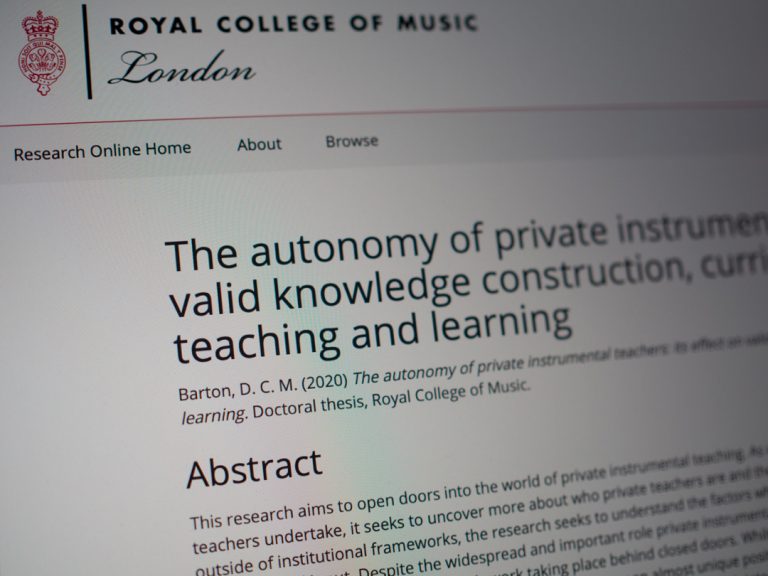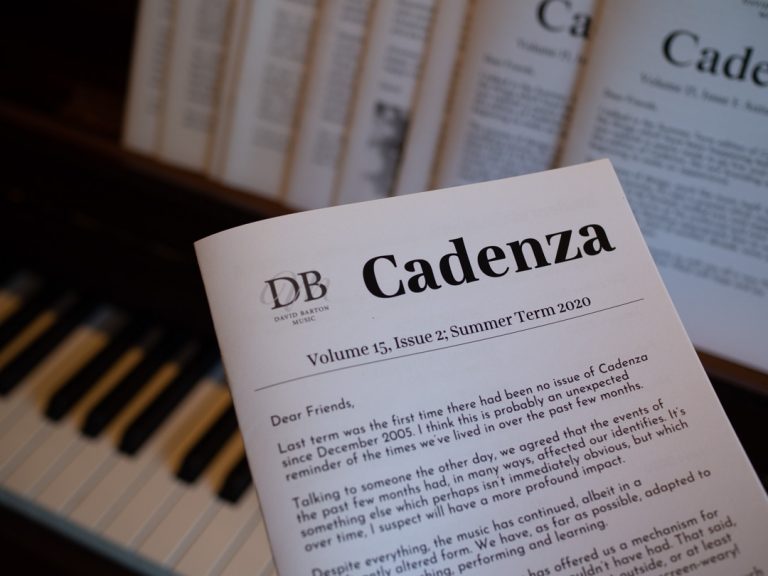Graded music exams have a long history, and in the time they have existed – well over a century – they have been staunchly defended as much as they have been criticised. As their availability has increased, choice widened, and prestige accepted as part of the musical establishment, it has become all too easy for teachers to find themselves stuck on the exam treadmill. In the 25 years I’ve been teaching, there have been times when I’ve felt that pressure, and I’m sure you have too. For many of us, it was the way we were taught, and we all carry the baggage of our own musical experiences as children.
One thing which seems certain is that music exams are here to stay, and whilst they might evolve and change, their popularity appears undiminished. So how can we make use of these assessments more mindfully – as part of the musical journey rather than an ultimate goal? How can we help our students grow as musicians, especially those who choose to work towards an exam at some point on that journey?
The Traditional Exam Approach
The advent of online and digital exams has widened both the availability and accessibility of music exams. In some respects, these are positives, but whatever format a music exam takes – in-person or digital – it’s easy for both teachers and students, and quite often parents too, to fall into the trap of the exam treadmill, where deadlines are set and boxes ticked on an alarmingly regular basis.
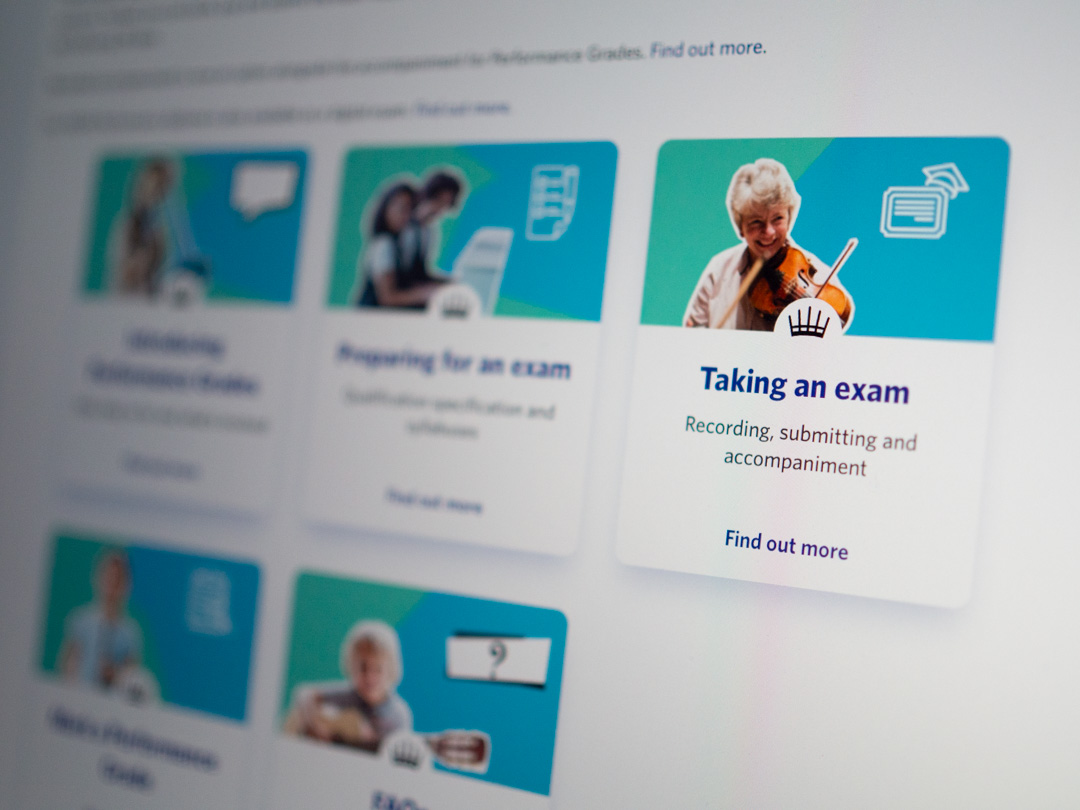
I should acknowledge that however critical I may be of music exams, I still fundamentally believe that there is a place for them as part of the music education landscape. They won’t suit everyone, and some students will traverse their entire musical journey without having ever sat an exam. For their positives, I’ve also seen the way in which music exams can have a negative effect on growth and development. The exam syllabus all too easily becomes a curriculum; skills, knowledge and repertoire limited to that which is listed there.
What might mindful use of music exams look like?
What Mindful Use of Music Exams Looks Like
I wonder if we might reframe the use of exams, so that they become tools on the journey, rather than endpoints. I believe that by listening to our students, understanding their goals, aims, preferences and interests, we can seek an approach to music exams which remains student-centred. I also believe that with balanced preparation, exam work can be incorporated into a student’s broader musical journey. It’s easy to separate out exam work as separate from wider musical development. Music exams can celebrate progress, but we should also celebrate progress in other ways, by valuing effort, curiosity, and personal and musical growth and development, as well as marks.
Practical Strategies for Teachers
If you feel like perhaps you’re stuck on the exam treadmill, or maybe you’d like to reevaluate the way you use music exams in your own teaching studio, here are some practical strategies which I hope might help:
Establish an ongoing dialogue with your students
Listen to your students and regularly check in with their aims, goals and interests. These change and develop over time, so in many ways, this is an ongoing discussion. Are music exams part of this?
If a student is keen to work towards an exam, that doesn’t mean you have to start preparing immediately. It might be something to consider further down the line, but their preferences can help us as teachers to plan ahead.
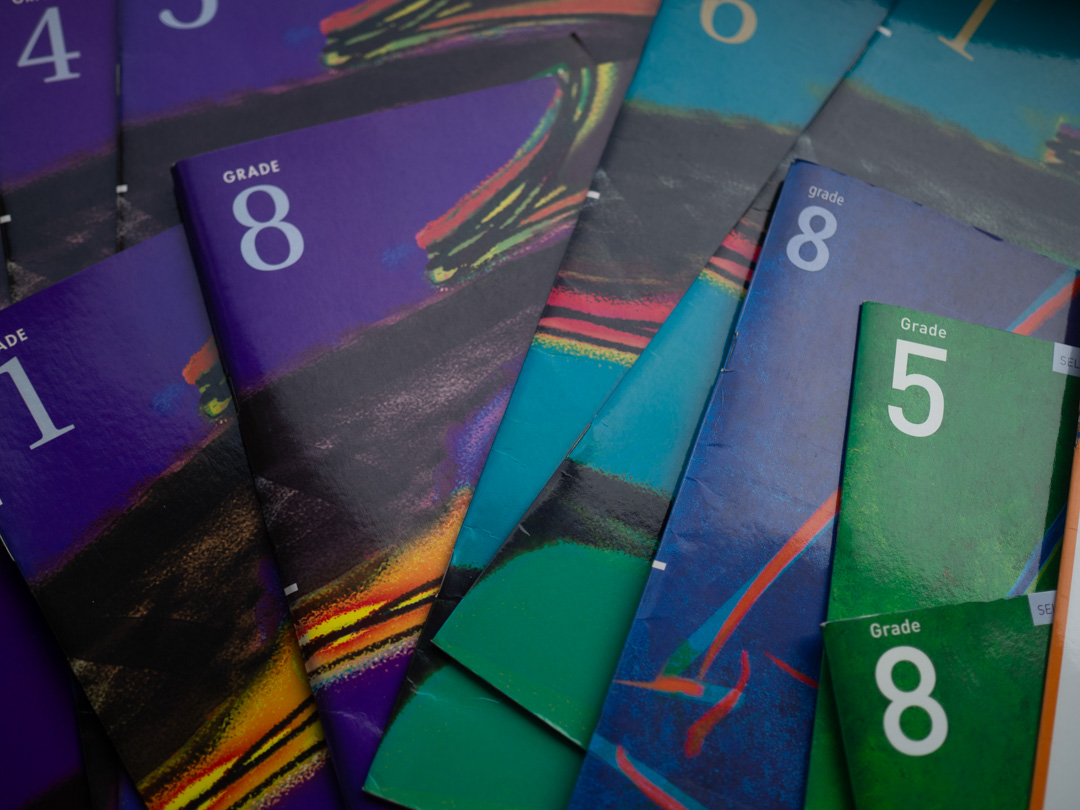
Music exams aren’t for everyone
Accept that music exams aren’t for all students, and that’s OK. They can still grow and develop, both as musicians and individuals, without the need to work towards an exam.
In almost any studio community, there will be students who work towards exams, and students who don’t. I believe that’s a good thing and it’s important that all students feel their growth, progress and development is recognised and valued.
Develop skills and knowledge holistically
For those who choose to work towards exams, embed the development of skills and knowledge holistically – I don’t believe that students should work towards exams to learn the skills the exam assesses, but rather, the skills which are already being developed are assessed as part of the journey.
A gentle reminder that students don’t learn to clap in time to a piece of music and state whether it’s in 2 or 3 time because it appears on the ABRSM Grade 1 Aural Tests. We learn about pulse, rhythm and time because it supports students’ musical development in a wide range of different ways, not least in encouraging the development of independent learning skills.
Explore different exam formats
Choose an exam format which suits the student – this might be an in-person, digital, online, or recorded exam. You can mix and match too, nothing is set in stone.
As I’ve written previously, digital and recorded music exams are here to stay. I don’t believe they are easier, but they are different. They won’t suit all students, but some will benefit from that format, so they are worth exploring.
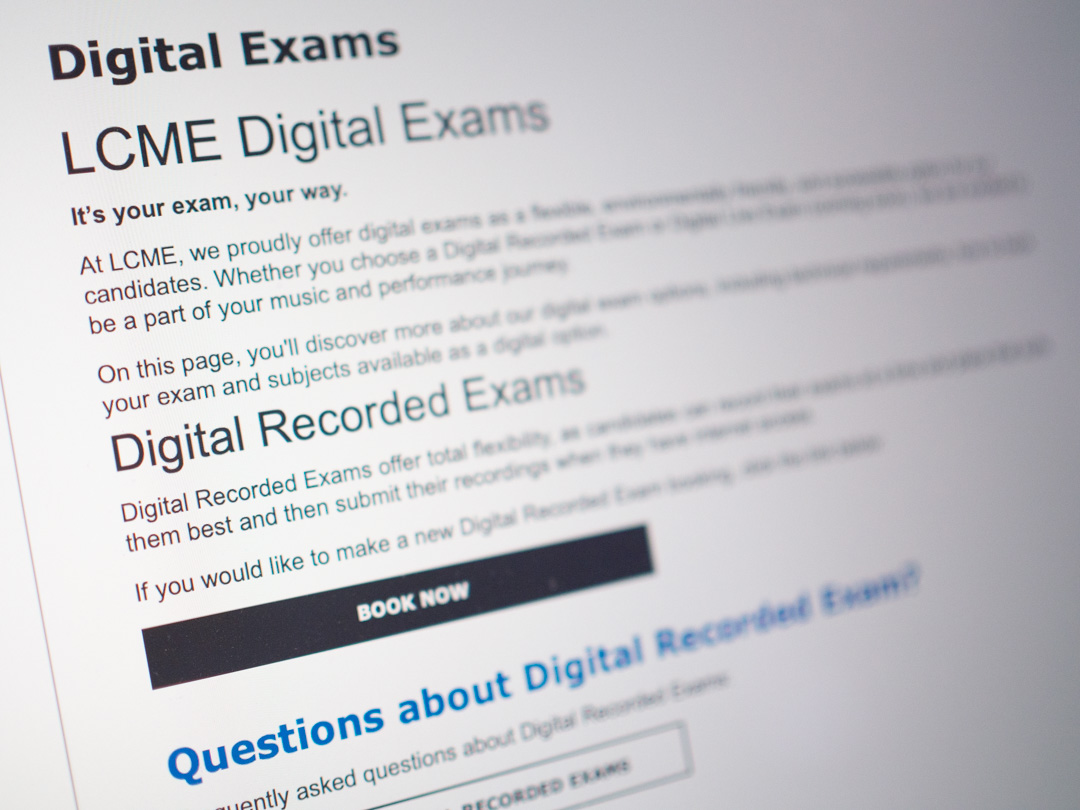
Consider different types of assessment
Choose an assessment format which puts the student at the centre – this might be a traditional graded exam, a performance exam, a recital grade, a leisure play exam, a repertoire pathway, or a technical pathway – we are blessed with so much choice which allows us to support our students’ musical development as individuals.
I have long believed that if we are going to use music exams with our students, the assessment should be chosen in consideration of their musical journey. A performance or repertoire-only pathway doesn’t mean that the associated skills can’t be developed, it just means they aren’t assessed in an exam situation. This point is often overlooked.
Explore exam repertoire widely
Explore the exam repertoire widely, not just the pieces in the published books – spend time exploring pieces with your students allowing them to indicate their preferences. Explore a wide range of styles, and don’t pre-judge what they might like or not like. My students constantly surprise me, and in some respects, are far more open-minded than some teachers I’ve met. Expose students to sufficient music that they can reflect on their likes and dislikes with thoughtfulness.
A gentle reminder that many other pieces are available beyond the published books themselves, and the advent of platforms such as YouTube and IMSLP means it is easier than ever to explore them. Remember that you might make some wonderful new discoveries too – I have!
Choose supporting tests mindfully
For exams with supporting tests, you might be able to choose which tests a student undertakes – aural, sight-reading, musical knowledge, or improvisation. Again, consider the way in which these support the student’s development.
It’s also worth remembering that these supporting tests are not the same as the skills themselves. Sight-reading is developed holistically through a range of different skills and areas of knowledge – it’s not just a test in an exam.
It isn’t compulsory to do every grade
Don’t feel forced into doing every grade, and make sure your students don’t too. If nothing else, exams are so expensive these days, collecting all eight certificates is beyond many people’s financial means.
On any student’s musical journey, exams may come and go, if they appear at all. They might change in response to students’ aims and interests too. These days, there is so much choice to explore and embrace!
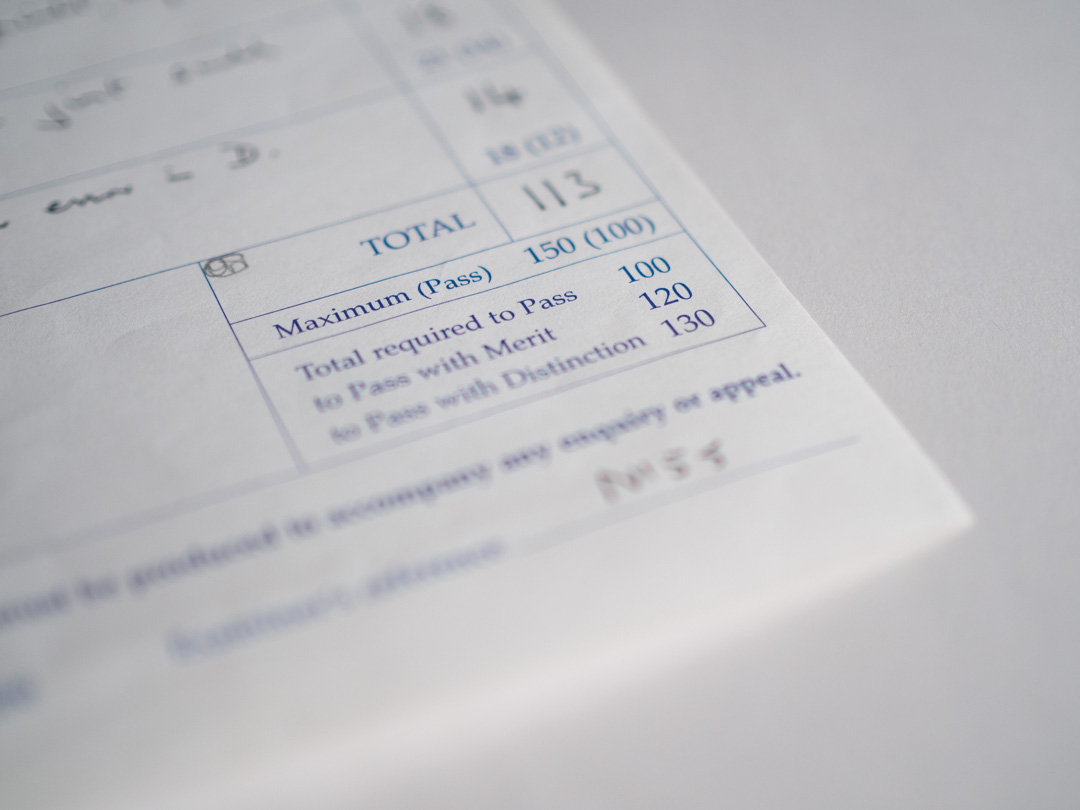
This list is not exhaustive, but I believe that mindful use of music exams doesn’t mean abandoning standards, but rather, it enhances learning and motivation in a way which meets students on their musical journey where they’re at.
A Call to Reflect
The use of music exams is firmly established within the perceived prestige of the accepted musical establishment. There is certainly a place for music exams, but as their accessibility and availability grows, we should all challenge ourselves to reflect on the way we currently use them in our teaching.
If you feel stuck on the exam treadmill, with all the pressure which comes with that, I’d love you to explore some of the gentle approaches I’ve outlined above. There is no right answer, and every student and teacher is different. Why not explore one small change next time you start working with a student towards an exam?
Exams can be valuable stepping stones on a student’s musical journey, but are not the finish line. Use exams mindfully and in a way which enables all students to thrive, grow and develop, both as musicians and individuals.
If you have enjoyed this post, please consider supporting my work by buying me a virtual coffee. You can do this from as little as £2 and it enables me continue creating and developing new content, services and products. Your support is much appreciated.
You can also support my work by connecting with me online


